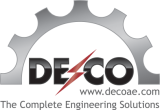Introduction to Energy Efficiency and Its Importance
Energy efficiency is critical for businesses aiming to reduce operational costs, improve sustainability, and minimize their environmental impact. By implementing energy-efficient practices, businesses can save money, enhance their corporate reputation, and contribute to global efforts to combat climate change. According to the International Energy Agency (IEA), improving energy efficiency in buildings, industry, and transport could contribute to around 40% of the greenhouse gas emissions reductions needed to meet global climate goals.
Practical Tips for Businesses to Reduce Energy Consumption
- Switch to LED Lighting:
- Benefits: LED bulbs use up to 75% less energy than traditional incandescent bulbs and last 25 times longer. According to the U.S. Department of Energy, widespread use of LEDs could save about 348 TWh of electricity by 2027, equivalent to the annual electrical output of 44 large electric power plants.
- Implementation: Conduct an audit of your current lighting system, replace incandescent and fluorescent bulbs with LEDs, and install motion sensors and dimmers to optimize lighting usage.
- Upgrade to Energy-Efficient Appliances:
- Benefits: Energy-efficient appliances consume less power, reducing energy bills and greenhouse gas emissions. The Energy Star program reports that certified appliances can save businesses up to 30% on energy costs.
- Implementation: Replace old appliances with Energy Star-certified models, prioritize equipment with higher energy ratings, and regularly maintain appliances to ensure they operate efficiently.
- Implement Building Automation Systems (BAS):
- Benefits: BAS integrates various building systems (HVAC, lighting, security) to optimize energy usage and improve operational efficiency. According to a study by the Lawrence Berkeley National Laboratory, implementing BAS can reduce building energy use by 10-30%.
- Implementation: Invest in BAS technology, conduct regular system audits to identify inefficiencies, and train staff on optimal system usage.
- Enhance Insulation and Weatherization:
- Benefits: Proper insulation and weatherization reduce heating and cooling needs, leading to significant energy savings. The Environmental Protection Agency (EPA) estimates that sealing leaks and adding insulation can save up to 20% on heating and cooling costs.
- Implementation: Conduct an energy audit to identify areas needing insulation improvement, seal leaks around windows and doors, and upgrade insulation in walls, attics, and basements.
- Promote Energy-Saving Behaviors:
- Benefits: Encouraging energy-saving behaviors among employees can lead to substantial reductions in energy use without significant investment. Simple actions like turning off lights, using power strips, and adjusting thermostat settings can collectively make a big impact.
- Implementation: Launch awareness campaigns, provide training sessions, set up incentives for energy-saving suggestions, and establish company-wide energy conservation policies.
Case Studies of Companies Implementing Energy-Efficient Practices
- Google:
- Initiatives: Google has invested heavily in renewable energy and energy efficiency. The company uses machine learning to optimize its data centers, reducing cooling energy by up to 40%.
- Impact: Google has achieved carbon neutrality since 2007 and aims to operate entirely on carbon-free energy by 2030.
- Walmart:
- Initiatives: Walmart has implemented energy-efficient technologies in its stores, such as LED lighting and energy management systems.
- Impact: The company aims to reduce emissions by 1 billion metric tons by 2030 and has already saved billions in energy costs.
How DECO Supports Businesses in Achieving Energy Efficiency
At DECO, we provide comprehensive solutions to help businesses implement energy-efficient practices:
- Energy Audits: We conduct detailed energy audits to identify inefficiencies and recommend improvements.
- Customized Solutions: Our team designs tailored energy efficiency strategies, including lighting upgrades, HVAC optimization, and insulation improvements.
- Training and Support: We offer training programs to educate employees on energy-saving practices and provide ongoing support to ensure sustained energy efficiency.
Conclusion and Benefits of Energy Efficiency
Implementing energy-efficient practices is essential for businesses looking to reduce costs, enhance sustainability, and minimize environmental impact. By adopting measures such as switching to LED lighting, upgrading appliances, and enhancing insulation, businesses can achieve significant energy savings and contribute to global climate goals. DECO is committed to supporting businesses in their energy efficiency journey, helping them realize the full benefits of sustainable practices.





